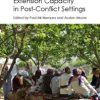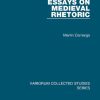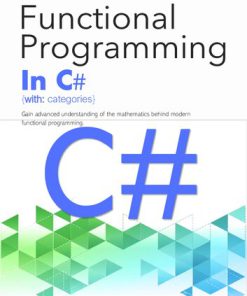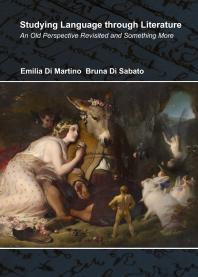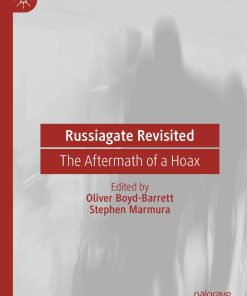Basic Categories of Fantastic Literature Revisited 1st Edition by Joanna Matyjaszczyk, Piotr Spyra, Andrzej Wicher ISBN 9781443871433 1443871435
$50.00 Original price was: $50.00.$25.00Current price is: $25.00.
Basic Categories of Fantastic Literature Revisited 1st Edition by Joanna Matyjaszczyk, Piotr Spyra, Andrzej Wicher – Ebook PDF Instant Download/Delivery: 9781443871433 ,1443871435
Full download Basic Categories of Fantastic Literature Revisited 1st Edition after payment
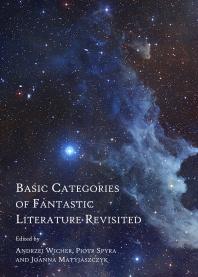
Product details:
ISBN 10: 1443871435
ISBN 13: 9781443871433
Author: Joanna Matyjaszczyk, Piotr Spyra, Andrzej Wicher
A unique collection of essays on selected aspects of science-fiction, fantasy and broadly understood fantastic literature, unified by a highly theoretical focus, this volume offers an overview of the most important theories pertaining to the field of the fantastic, such as Tzvetan Todorov’s definition of the term itself, J.R.R. Tolkien’s essay ‘On Fairy Stories,’ and the concept of ‘Gothic space’. The composition and order of the chapters provide the reader with a systematic overview of major theoretical perspectives and serve as an accessible introduction to the topic of fantastic literature. The book combines reflection on various genres such as fantasy, science fiction, horror, Gothic writing, and even drama, offering a comprehensive overview of the fantastic across generic lines. The authors whose works are addressed by the volume’s twelve chapters include some of the most popular household names in fantastic literature, such as H.P. Lovecraft, George R.R. Martin, Clive Barker and Neil Gaiman. In addition, the volume also includes readings of contemporary fantastic literature against the backdrop of world literature classics, such as Homeric poetry, Edmund Spenser and the drama of the English Renaissance.
Basic Categories of Fantastic Literature Revisited 1st Edition Table of contents:
Chapter One: The Fantastic as a Technique of Redynamizing Mimetic Fiction — Halszka Leleń
Chapter Two: Todorov’s Fantastic and Aguirre’s Numinous as the Stages of an Uncompleted Rite of Passage — Joanna Matyjaszczyk
Chapter Three: Gothic Time and Non‑Euclidean Spaces: Temporal Geometries of Terror in the Works of H.P. Lovecraft — Piotr Spyra
Chapter Four: “People Have a Tendency to Rationalize What They Can, and Forget What They Can’t”: On the Ambivalence of the Fantastic Universe in Buffy the Vampire Slayer — Åsa Josefson
Chapter Five: “He howl’d fearfully; Said he was a wolf”: Lycanthropy in English Renaissance Tragedy and Contemporary Popular Fiction — Imke Lichterfeld
Chapter Six: The Reinvention of Lycanthropy in Modern Fantasy Literature — Weronika Łelęńczak
Chapter Seven: Robert E. Howard’s Conan Cycle as Modern Epic — Przemysław Górniak
Chapter Eight: On the Theories of Kingship in George R.R. Martin’s A Song of Ice and Fire — Bartłomiej Błaszkiewicz
Chapter Nine: Allegorizing the Fantastic: A Spenserian Reading of Neil Gaiman’s Neverwhere — Maria Błaszkiewicz
Chapter Ten: Critical Dystopia for Young People: The Freedom Meme in American Young Adult Dystopian Science Fiction — Robert Gadowski
Chapter Eleven: Freaks of Flesh and Mind: (De)generation in the Works of Clive Barker — Zbigniew Głowala
Chapter Twelve: Staging the Fantastic: Tolkien, Todorov, and Theatricality in Contemporary British Drama — Maciej Wieczorek
People also search for Basic Categories of Fantastic Literature Revisited 1st Edition:
categories of realistic fiction
library categories of books
subcategories for literature
subcategories of fantasy
theme categories in literature
Tags: Joanna Matyjaszczyk, Piotr Spyra, Andrzej Wicher, Basic Categories, Fantastic Literature Revisited
You may also like…
Medicine - Psychiatry
Cookbooks Food Wine
Computers - Programming
Uncategorized
Linguistics - Historical & Comparative Linguistics
Uncategorized
Relationships & Lifestyle - Dating

